Resources
Here you can search external resources from STOP Spillover's experts (tagged in blue) and resources developed by the STOP Spillover project (tagged in red).
We found 142 resources.
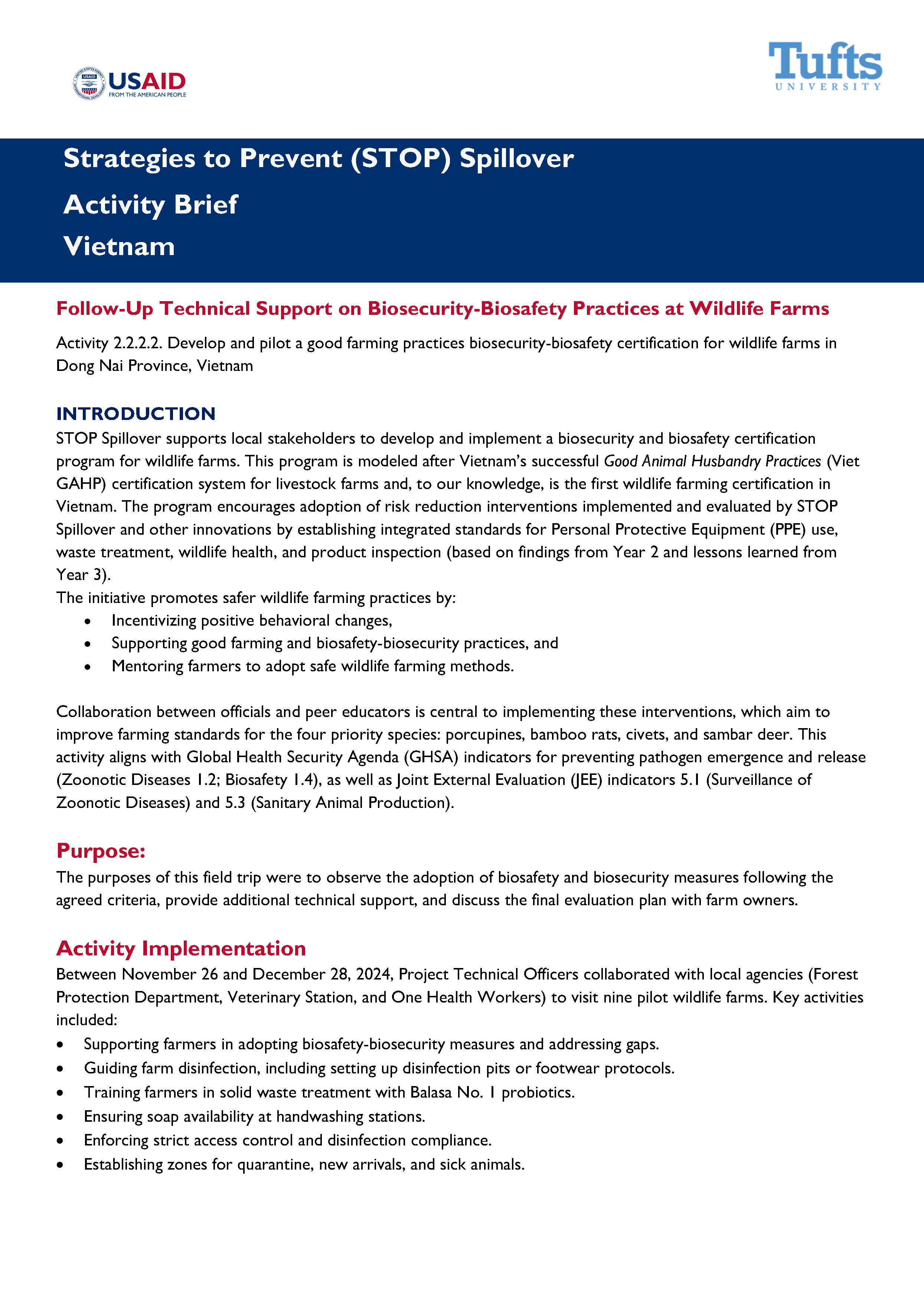
Activity Brief: Follow-Up Technical Support on Biosecurity-Biosafety Practices at Wildlife Farms
This brief summarizes visits that the STOP Spillover Viet Nam Country Team made to nine pilot wildlife farms to observe the adoption of biosafety and biosecurity measures, provide additional technical support, and discuss the final evaluation plan with farm owners.
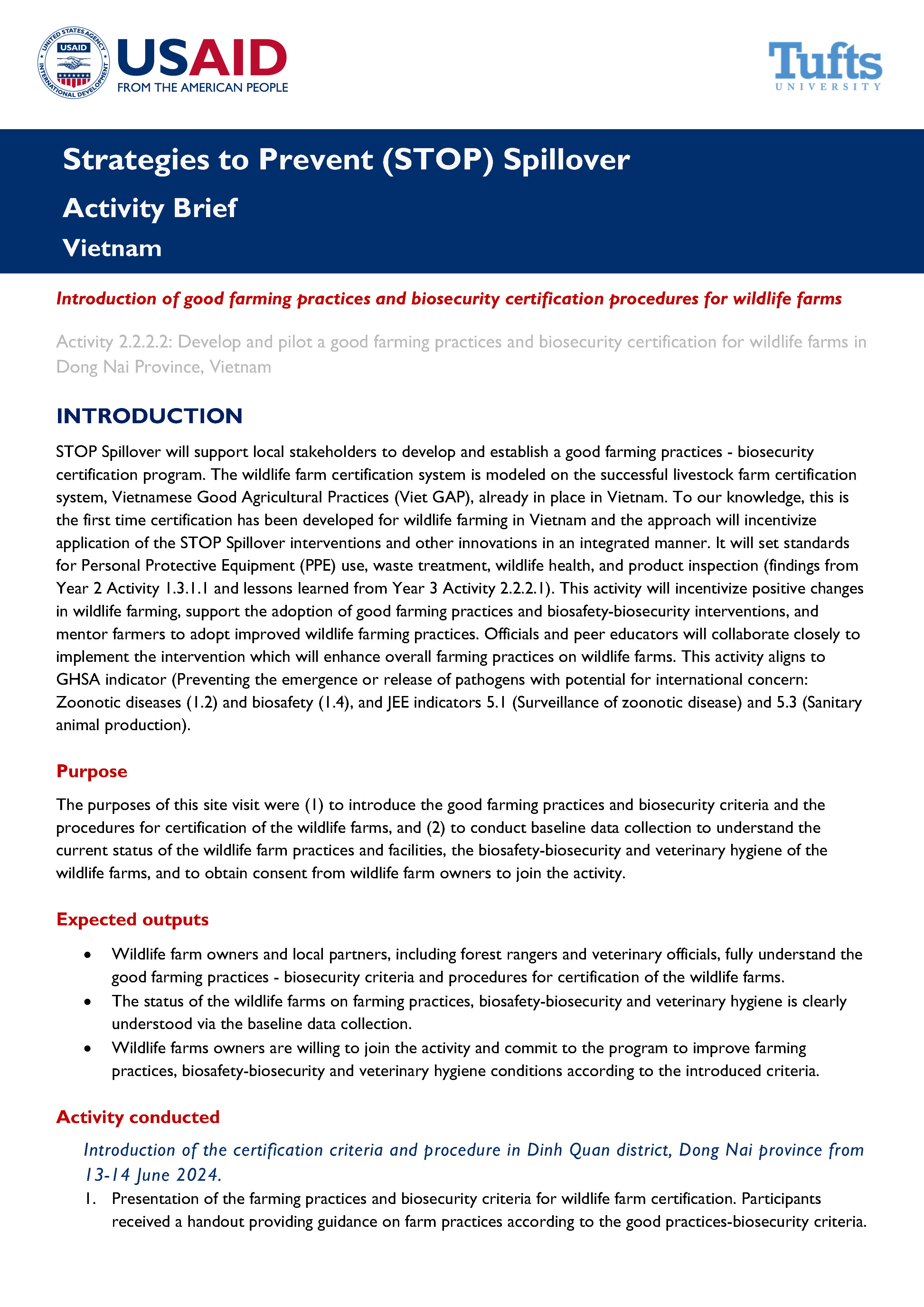
This brief describes the introduction of good farming practices, biosecurity criteria, and procedures for the certification of the wildlife farms to wildlife farm owners and local partners and the collection of baseline data on wildlife farms to assess the status of farm practices, biosafety-biosecurity, and veterinary hygiene.
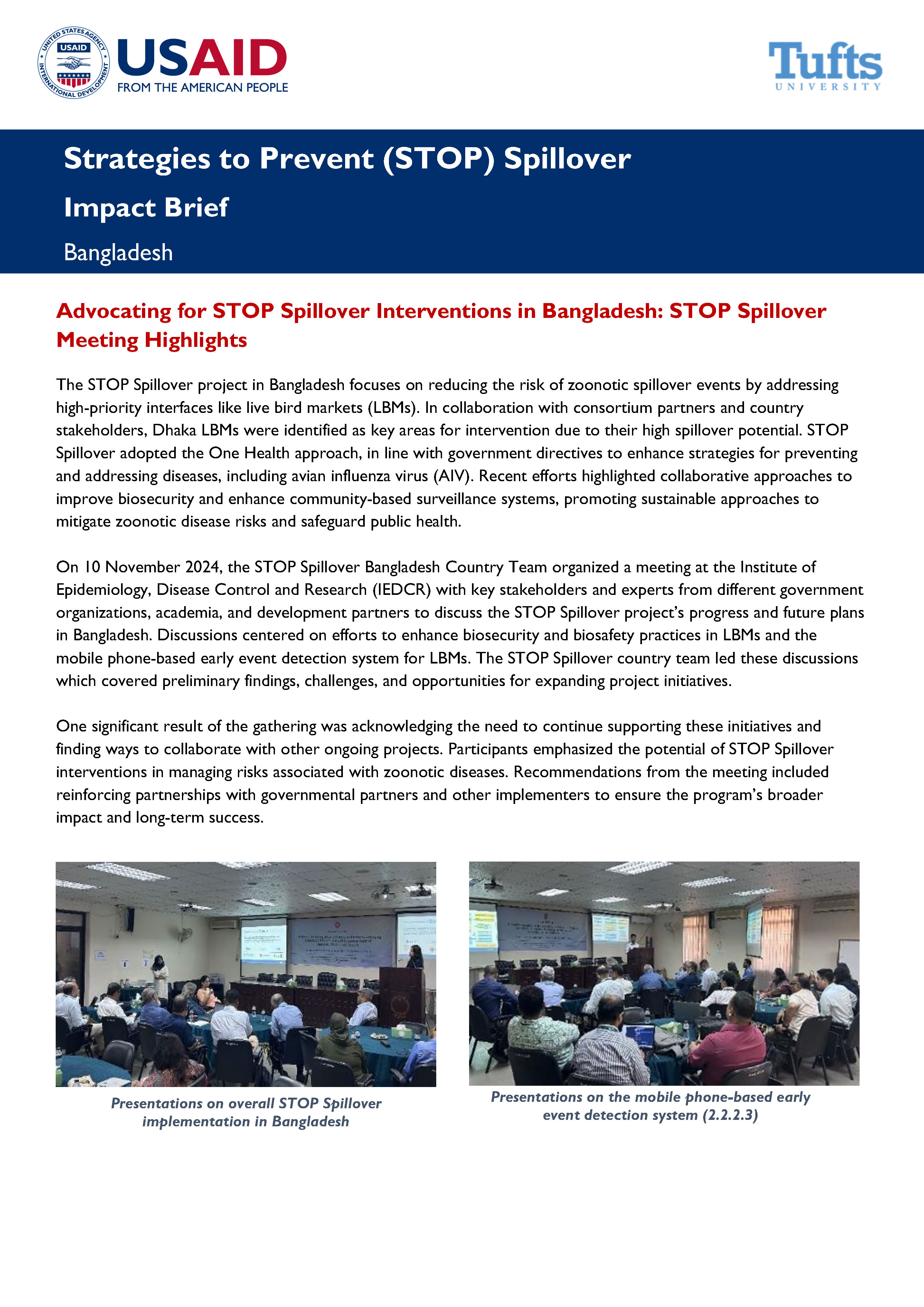
This brief describes a meeting that the STOP Spillover Bangladesh Country Team held with stakeholders to discuss the project's progress and future plans, including efforts to enhance biosecurity and biosafety practices in live bird markets and the mobile phone-based early event detection system.
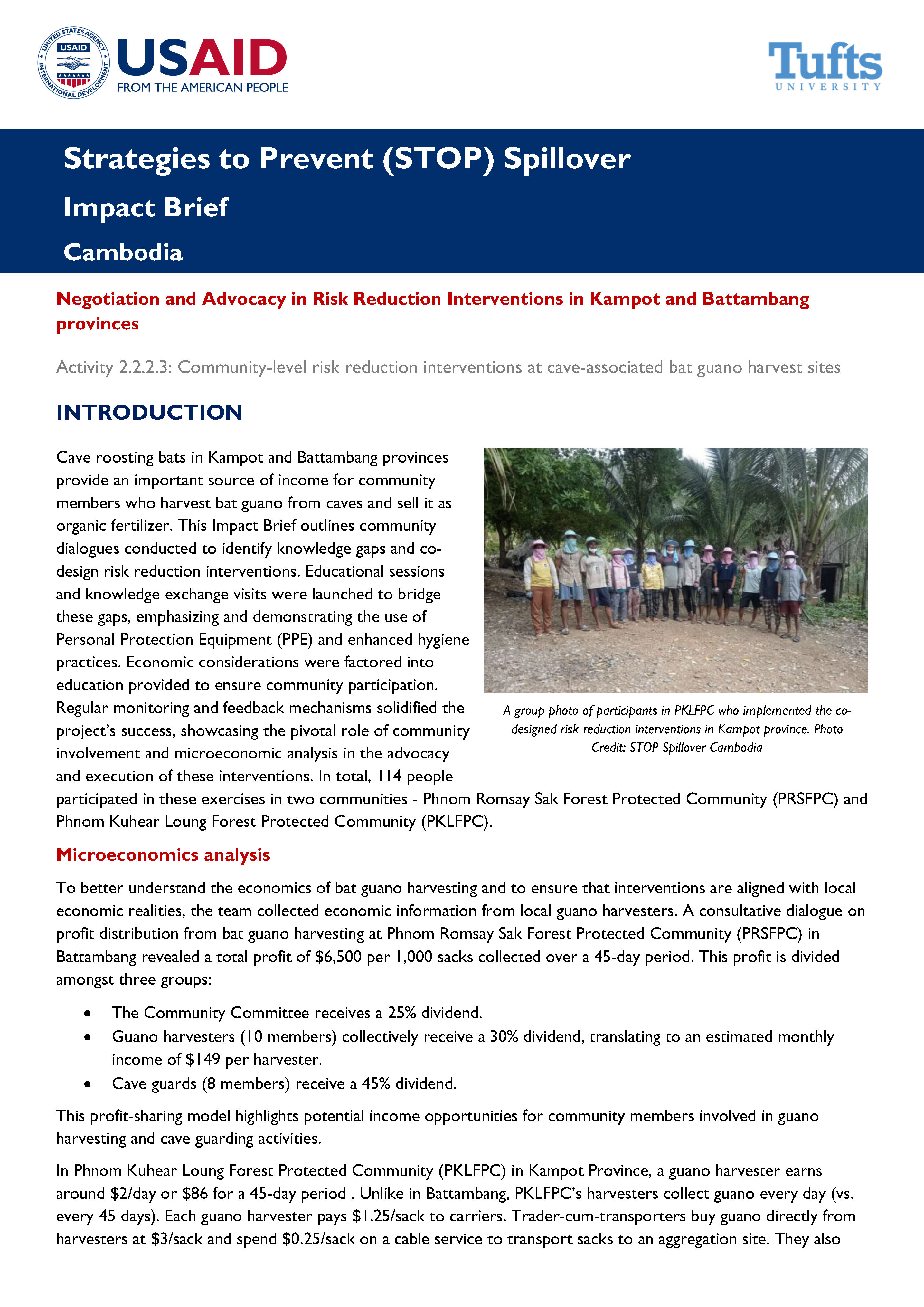
This brief summarizes community dialogues conducted to identify knowledge gaps related to the risks associated with bat guano harvesting and co-design risk reduction interventions, as well as educational sessions that were held to highlight and demonstrate the use of personal protective equipment and enhanced hygiene practices.
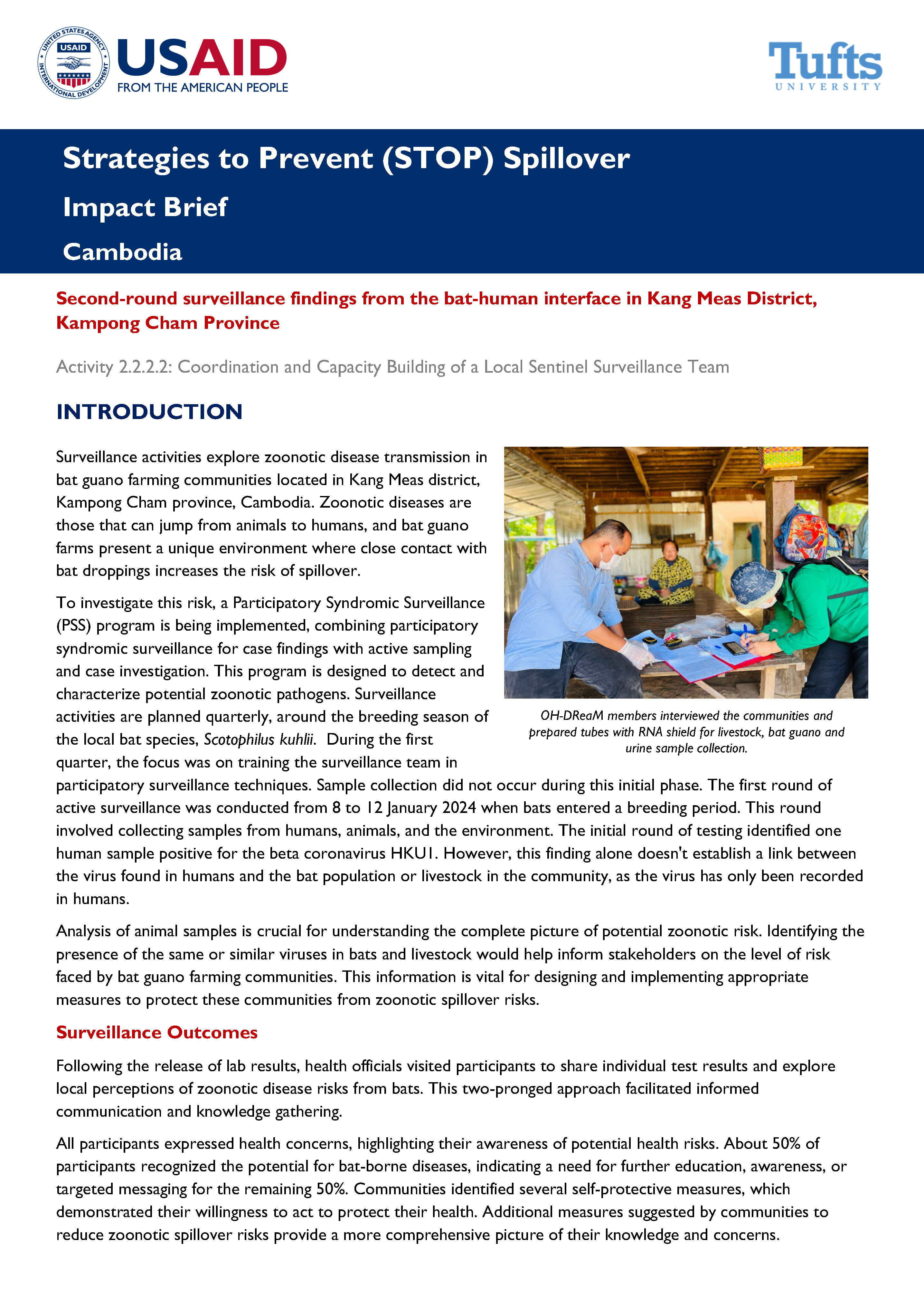
This brief describes the second round of surveillance conducted by the Participatory Syndromic Surveillance team, which combined participatory syndromic surveillance for case findings with active sampling and case investigation.
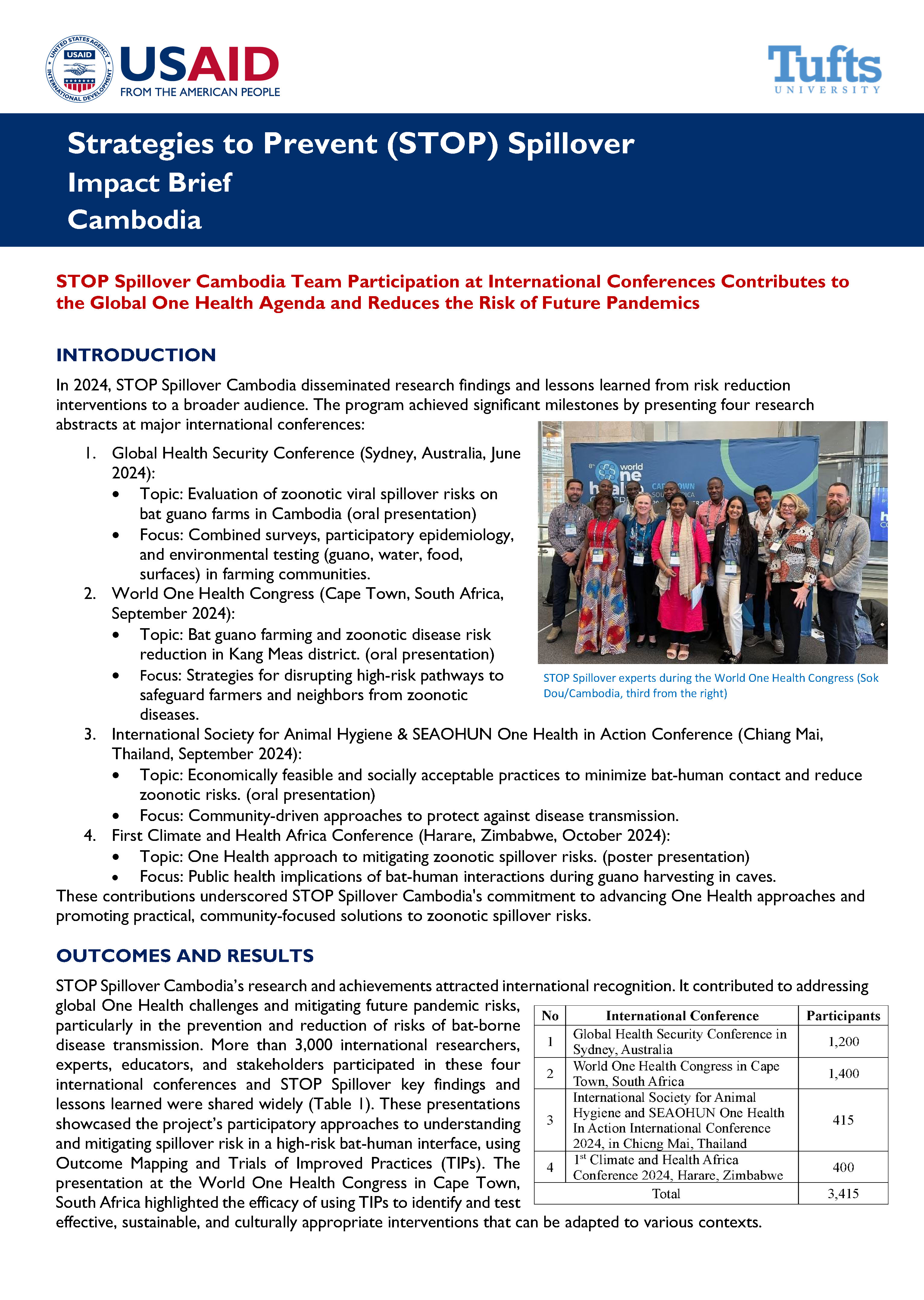
This brief describes the STOP Spillover Cambodia Country Team's dissemination of research findings and lessons learned from risk reduction interventions at four major international conferences.
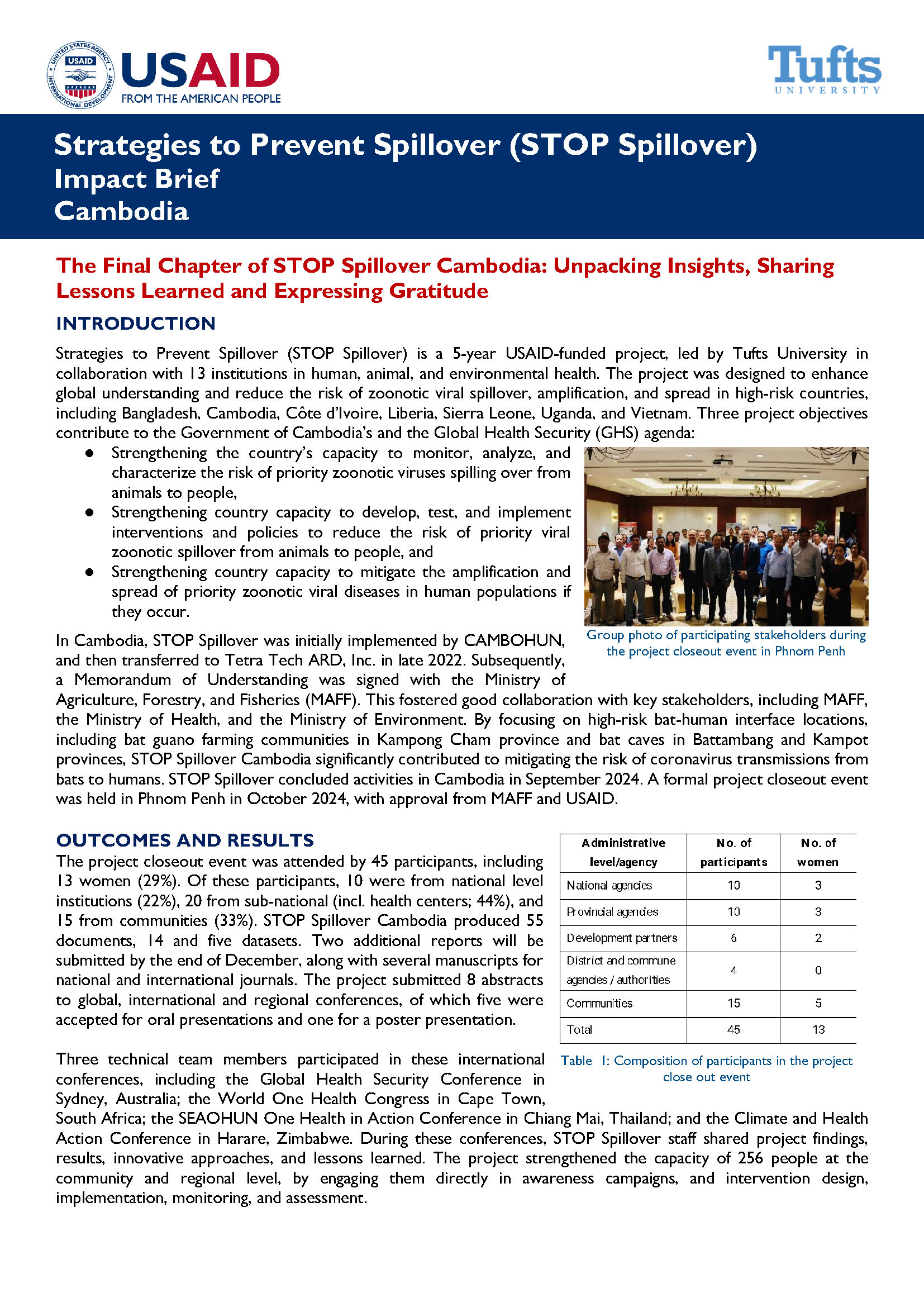
This brief describes the formal project closeout event for STOP Spillover Cambodia, which was held in September 2024.
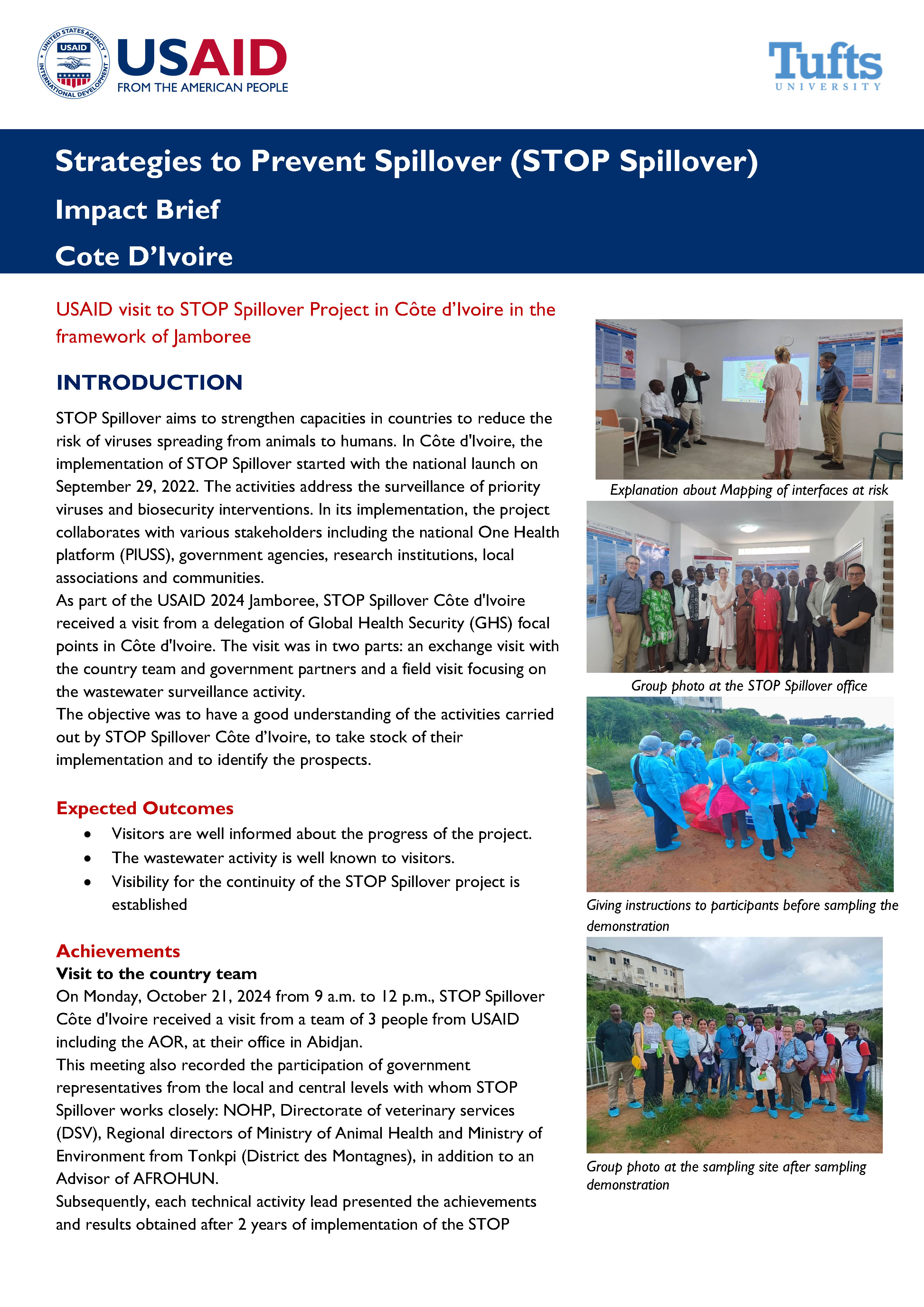
Impact Brief: USAID Visit to STOP Spillover Project in Côte d’Ivoire in the Framework of Jamboree
This brief summarizes a visit from a delegation from USAID to STOP Spillover Côte d'Ivoire. The jamboree included an exchange visit with the STOP Spillover Côte d'Ivoire Country team and government partners and a field visit that focused on wastewater surveillance.
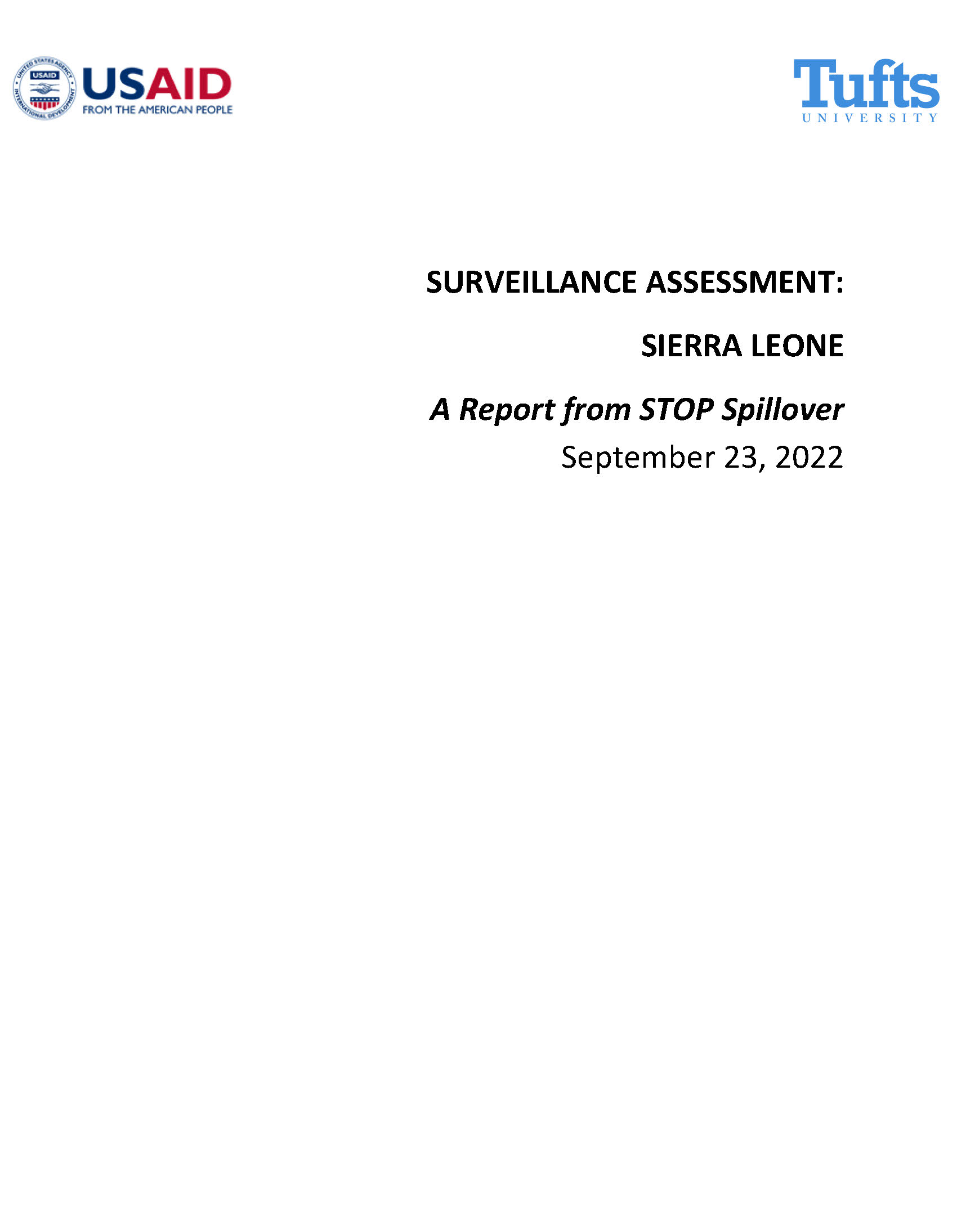
Sierra Leone Surveillance Assessment
This report summarizes the STOP Spillover Sierra Leone surveillance assessment, which was implemented to ensure that the project's activities complement existing surveillance activities, build on country capacity, and identify synergies and areas of mutual interest among stakeholders and institutions in Sierra Leone.
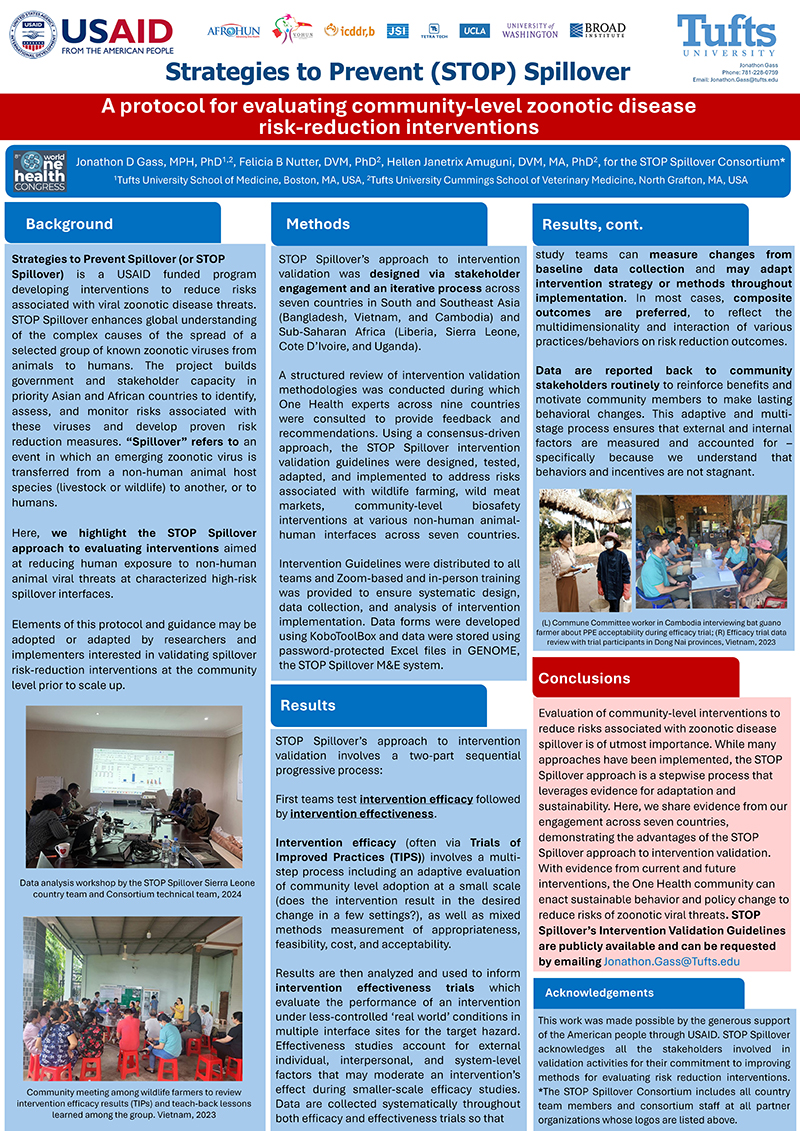
A Protocol for Evaluating Community-Level Zoonotic Disease Risk Reduction Interventions
This STOP Spillover poster, presented at the 8th World One Health Congress 2024, describes the project's approach to intervention validation, which was designed via stakeholder engagement and an iterative process across seven countries in South and Southeast Asia and Sub-Saharan Africa to address risks associated with wildlife farming, wild meat markets, and community-level biosafety interventions at various non-human animal-human interfaces.
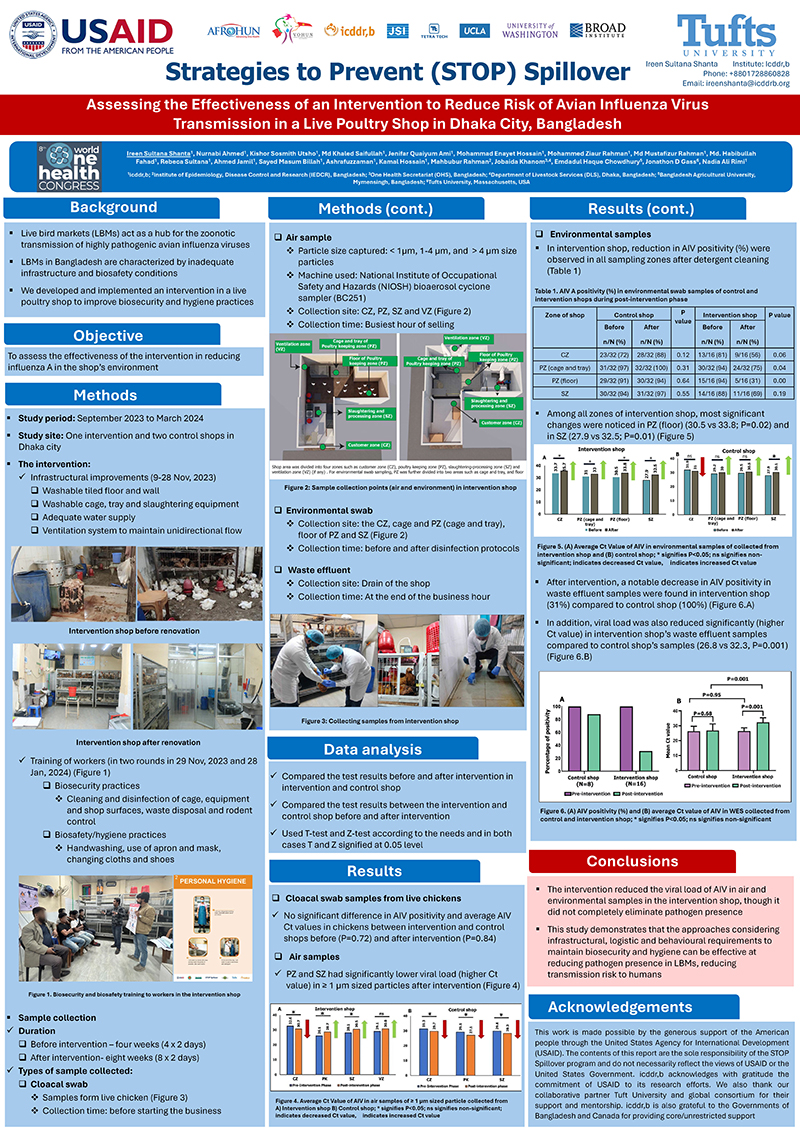
This STOP Spillover poster, presented at the 8th World One Health Congress 2024, describes a study of the effectiveness of an intervention to improve biosecurity and hygiene practices in a live poultry shop to reduce the presence of influenza A in the shop’s environment.
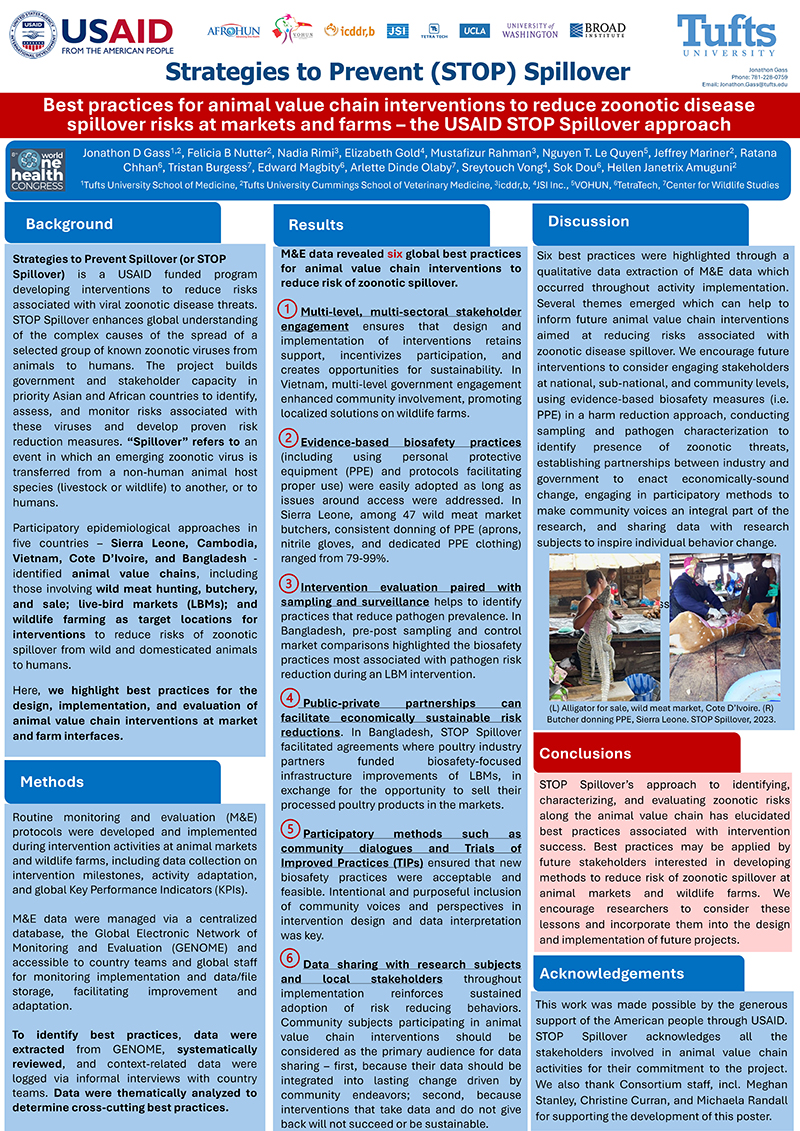
This STOP Spillover poster, presented at the 8th World One Health Congress 2024, describes six best practices for the design, implementation, and evaluation of animal value chain interventions at market and farm interfaces. The best practices were identified through qualitative data extraction of monitoring and evaluation data.
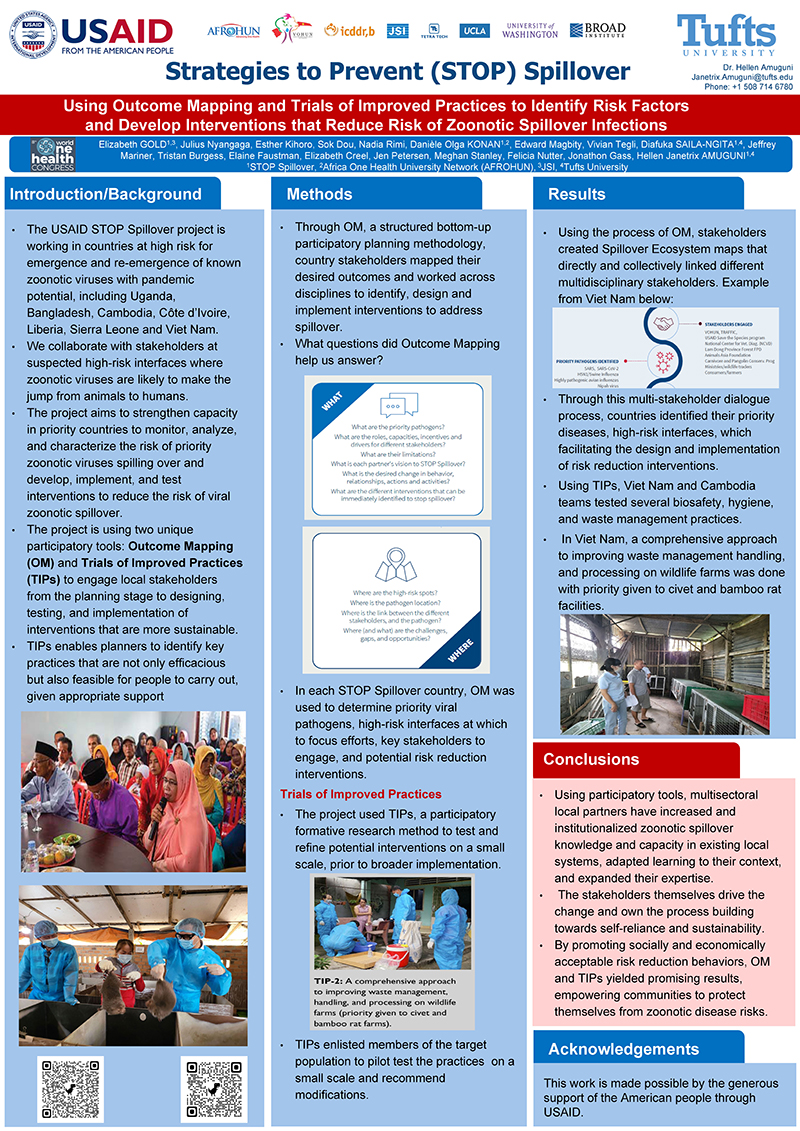
This STOP Spillover poster, presented at the 8th World One Health Congress 2024, describes the project's use of two unique participatory tools—Outcome Mapping and Trials of Improved Practices—to engage local stakeholders from the planning stage to designing, testing, and implementing interventions that are more sustainable.
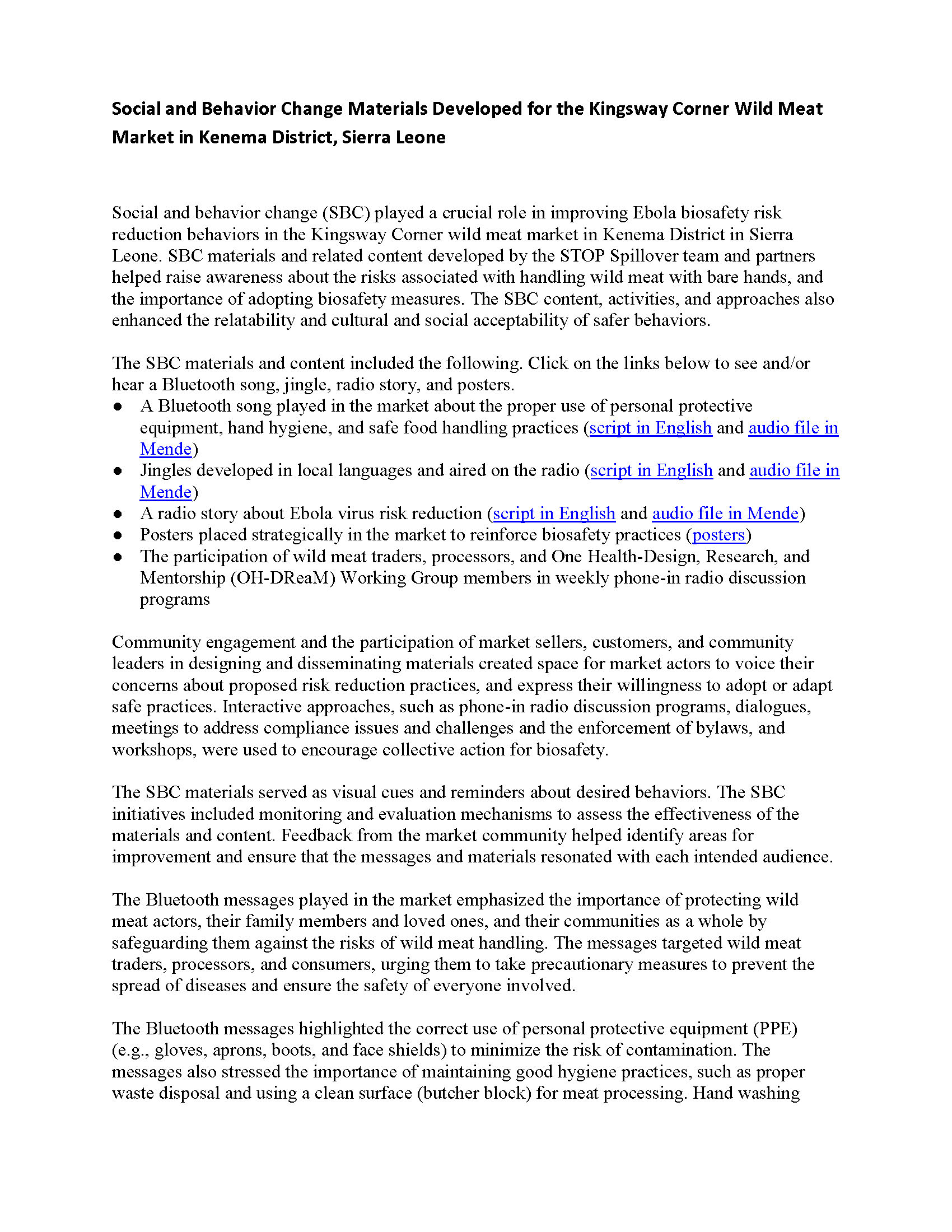
This resource describes and contains links to social and behavior change (SBC) materials developed by the STOP Spillover Sierra Leone Country Team and partners to raise awareness about the risks associated with handling wild meat and support the adoption of biosafety risk reduction behaviors in the Kingsway Corner wild meat market in Kenema District.
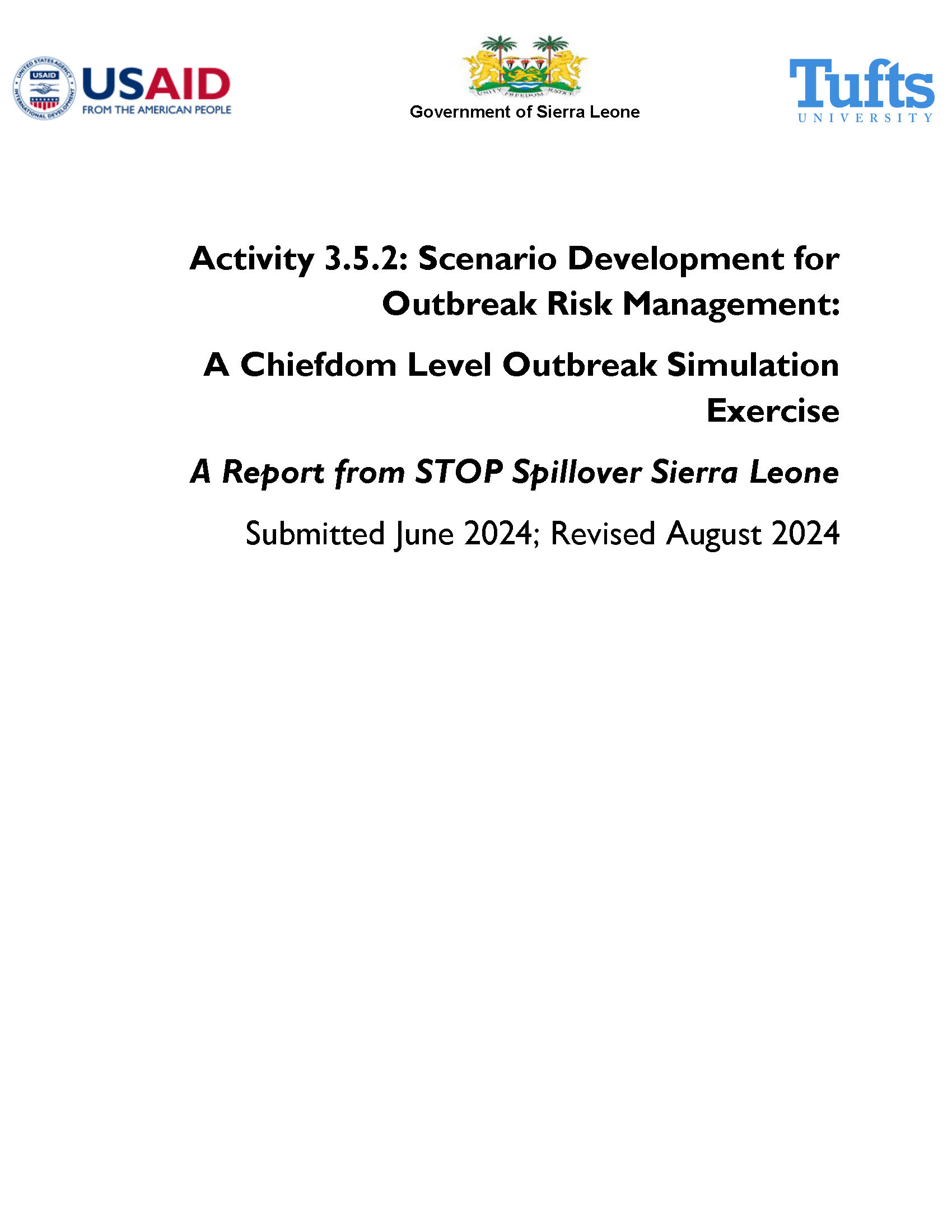
Scenario Development for Outbreak Risk Management: A Chiefdom Level Outbreak Simulation Exercise
This report summarizes a tabletop simulation exercise developed by STOP Spillover to test community-level response preparedness for viral hemorrhagic fever (VHF) outbreaks. The exercise was conducted in five chiefdoms in Kenema District in Sierra Leone to assess epidemic preparedness and readiness at a high-risk interface.
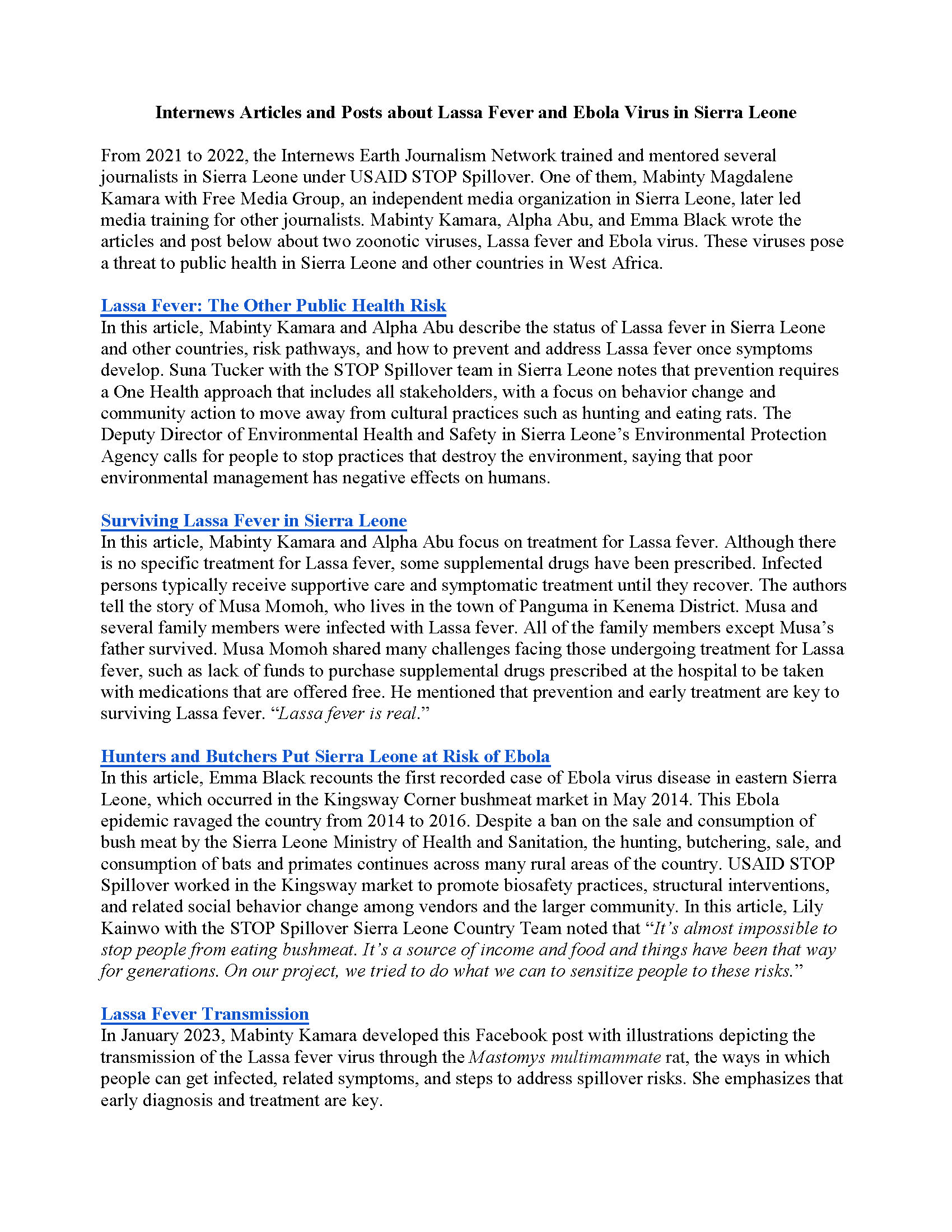
Internews Articles and Posts about Lassa Fever and Ebola Virus in Sierra Leone
Through STOP Spillover, the Internews Earth Journalism Network trained and mentored several journalists in Sierra Leone. This resource contains descriptions and links to articles and posts that the journalists published about Lassa virus and Ebola virus.
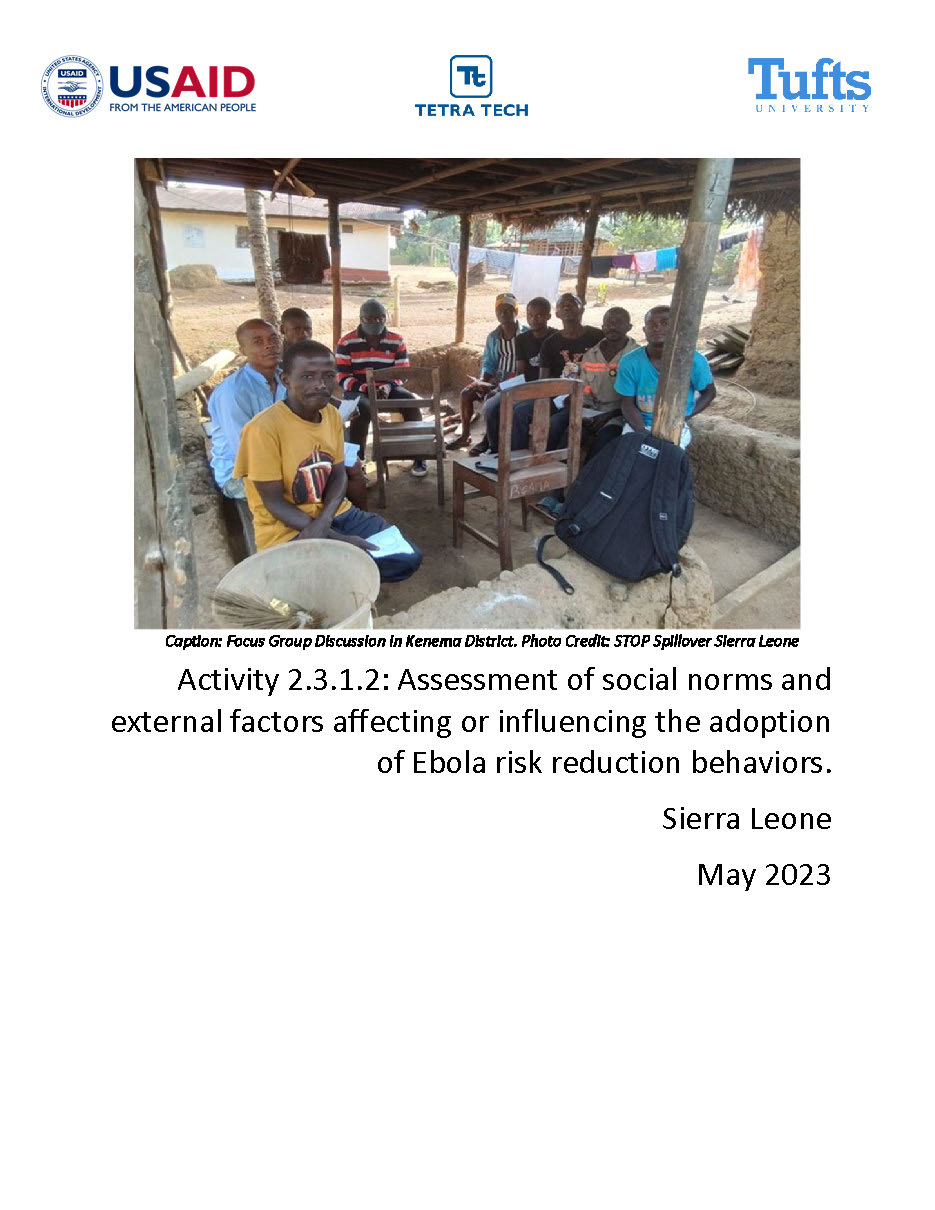
This report provides a summary of research findings on social norms and external factors that affect or influence the adoption of Ebola prevention behaviors in Kenema District, Sierra Leone. Some of the factors studied included local knowledge of Ebola infection, Ebola prevention measures, and cultural norms, social norms, and practices that influence risk.
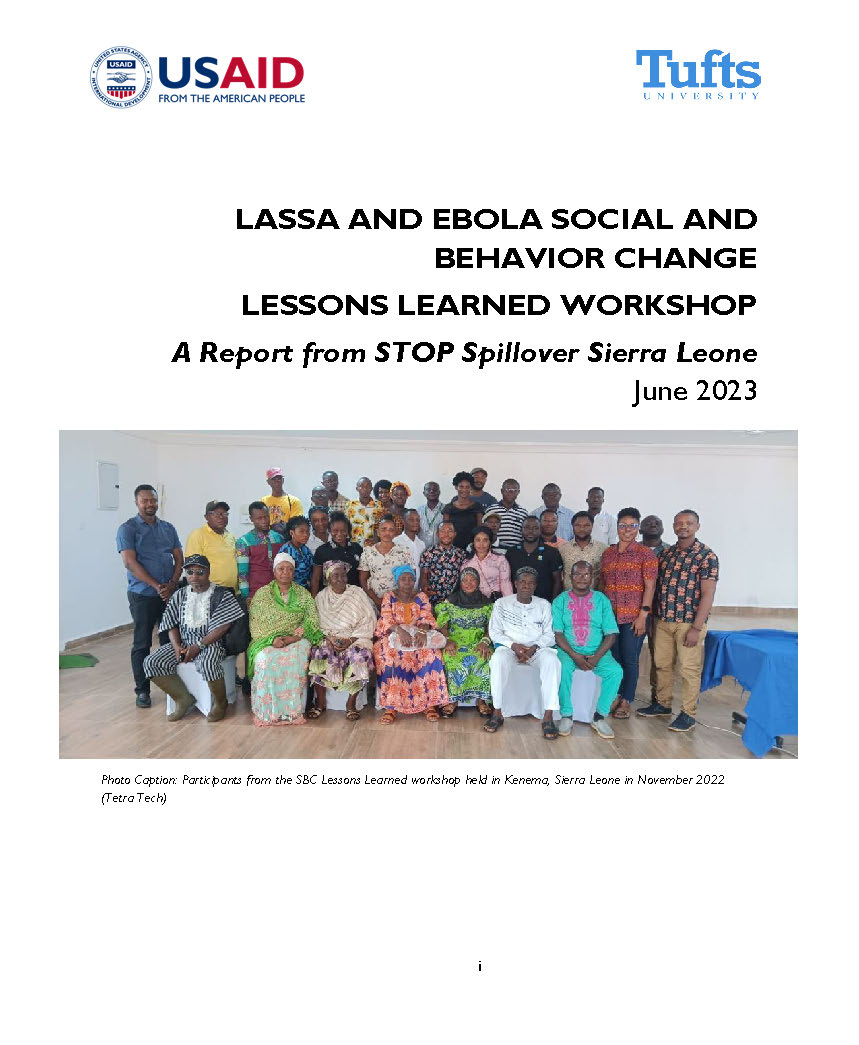
Lassa and Ebola Social and Behavior Change Lessons Learned Workshop
This report summarizes a workshop conducted by the STOP Spillover Sierra Leone Country Team to identify lessons learned and promising social and behavior change practices to reduce Lassa virus and Ebola virus spillover risks.
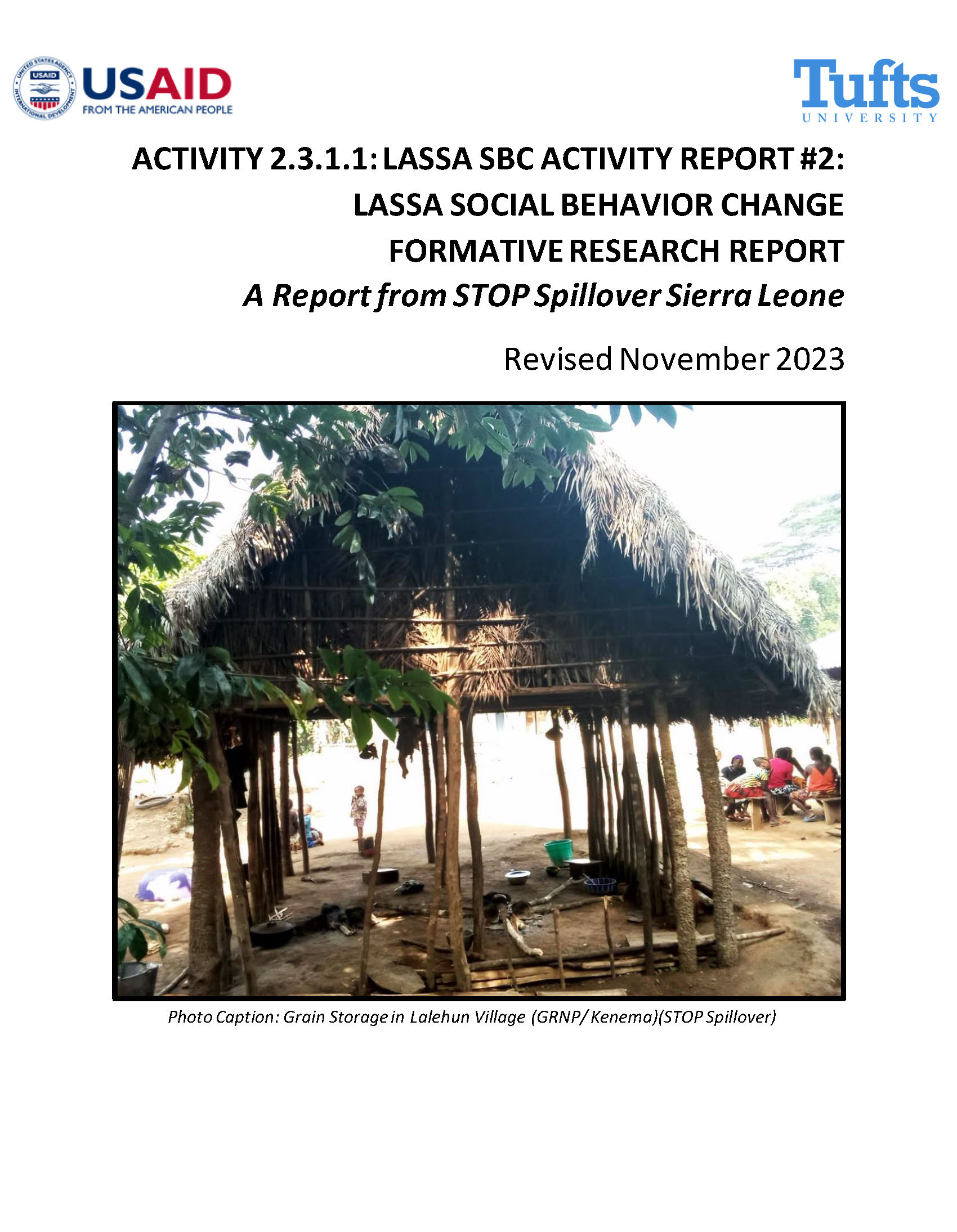
Lassa Social Behavior Change Formative Research Report
This report summarizes research findings on social norms and behaviors that affect or influence Lassa virus spillover risks in Kenema District, Sierra Leone, including local practices, beliefs, and social norms; populations and groups at high risk for Lassa spillover; traditional cultural norms, beliefs, and practices that influence spillover risk; and trusted sources of information.
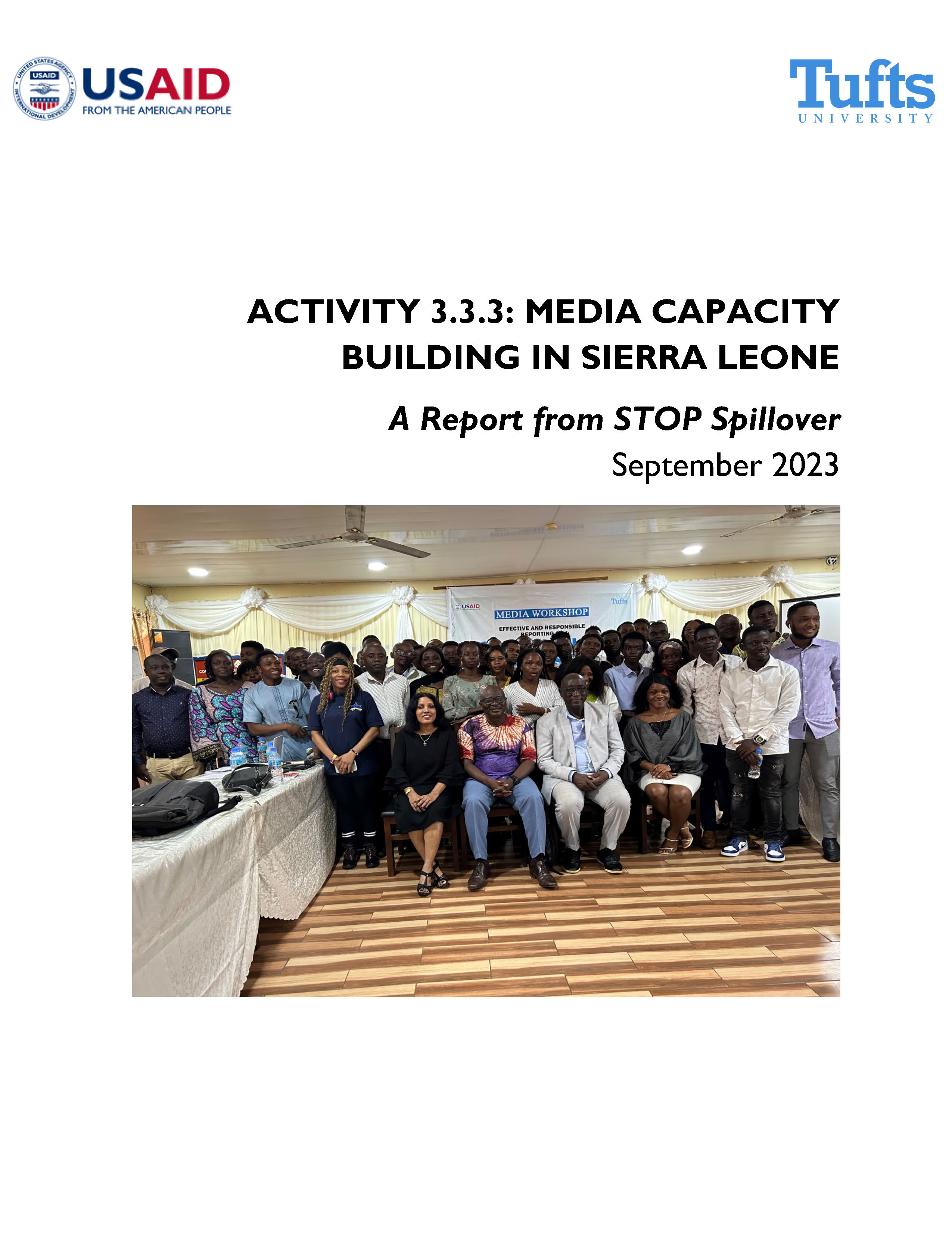
Media Capacity Building in Sierra Leone
This report describes a three-day training for journalists from national and regional media outlets in Sierra Leone. Sixty journalists participated in the training, which focused on enhancing journalists' capacity to report on zoonotic diseases and the One Health approach.